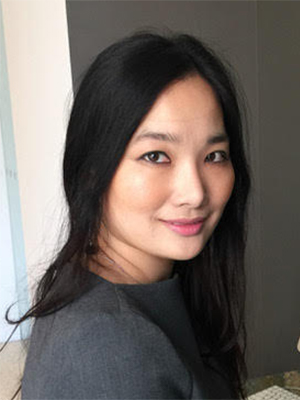Q-and-A: Finding Ways to Thrive at Work During Our Current Challenging Times


Professor Julia Lee Cunningham researches ways that outside factors affect our ability to thrive in work settings. She answered some questions about how these concepts apply to working during a pandemic.
Is the concept of thriving at work something we should even be thinking about, given the world situation? Or is just getting through each day enough for now?
Lee Cunningham: Thriving at work is defined as the psychological state in which people experience both a sense of vitality and a sense of learning at work. According to research on human sustainability by my colleague Gretchen Spreitzer and others, thriving employees are less susceptible to stress and burnout, and much healthier.
While this idea of sustaining vitality and learning is compelling, I should first acknowledge that the current global pandemic has created even greater variability in the conditions for thriving at work. As The New York Times reported recently using cell-phone location data, being able to stay home during the pandemic is a luxury that relatively wealthier individuals can afford. Even for workers who switched to remote work recently, having a quiet home office is another luxury that many Americans cannot afford.
Under these circumstances, we must accept that the concept of thriving at work now holds a different personal meaning; for some — especially those struggling with immediate caretaking responsibilities, job loss, and financial uncertainties — getting through each day without succumbing to the strain is an accomplishment. For others who are fortunate to work remotely, accepting the limitations in the cognitive and material resources that come with a sudden shift to remote work and acknowledging and regulating crippling emotions (e.g., sadness and grief, worries and fear, sense of hopelessness) would have to be the first step.
Thriving in difficult times may thus look more like surviving in this regard. However, accepting that our personal threshold for thriving has now shifted may offer new, creative opportunities to craft our work in more meaningful ways while being kind and compassionate toward oneself and others.
Your research has found that time spent commuting can be valuable, particularly as a way to transition between work and home. Suddenly, many people who are accustomed to a commute find themselves without one. What can people do to adjust?
Lee Cunningham: When my collaborators and I launched this research project on commuting, we were primarily interested in this question: Given that people commute an average of 38 minutes globally, what can commuters do to use their commuting time effectively, as they transition from home to work?
In this research, we proposed and found that employees who specifically focus on their upcoming work role tend to buffer the negative effect of long commutes, as it reduces the aversive experience of activating both home and work roles. We also found that this strategy is more effective for workers who tend to experience more work-family conflict (i.e., home responsibilities interfering with one’s ability to perform work responsibilities, and vice versa).
Now that commuting is close to nonexistent for many workers, employees will experience blurring of the physical, temporal, and psychological boundaries between home and work. And this experience can be particularly challenging for those who were already struggling with work-family conflict.
Fortunately, researchers have identified many creative ways for remote workers to intentionally create boundaries between home and work (see these practical examples by Laura Giurge and Vanessa Bohns). In addition, I think the same principles from our research can be applied here to help people smooth their transition between home and work; perhaps you can create a commuting-like morning routine by carving out a small pocket of uninterrupted time each day to ask a similar set of questions. Again, your strategies and plans may look more like survival strategies than productivity-optimizing strategies at the moment, but that is perfectly normal and may even help prevent burnout from having unreasonably high productivity expectations.
You’ve also done research that concluded that workers tend to be more productive on days when weather is bad, since there are fewer distractions. As we move into spring, how can people help stay focused on work?
Lee Cunningham: Managing our attention during the pandemic will certainly be a challenge. While some individuals may benefit from fewer distractions created by social interactions, many of us will struggle with a lot more distractions from worrying about the pandemic and its impact on our loved ones. There will be more interruptions from family members, reminding that many of us will experience some form of the BBC incident where two adorable children barged in during the interview of Professor Robert Kelly.
What might make matters worse is the possible effect of forbidden fruit. Jack Brehm’s psychological theory of reactance argued that when one’s freedom to engage in a certain behavior is limited or threatened, the individual will experience psychological reactance, which is why some may feel the urge to ignore the expert warnings against social gathering (e.g., now that I am told to stay home, the idea of socializing with my neighbors seem much more appealing, although I have never talked to them in the past). Even for the individuals who are responsibly practicing social distancing, the temptations associated with all the pre-pandemic activities that are now forbidden may become increasingly more distracting as weather conditions improve.
Given that the pandemic is affecting pretty much everyone differently, we cannot hold ourselves to the same standard when it comes to our attention and energy levels. What we can do, however, is to be aware of how the new routines are affecting our attention, and be deliberate in prioritizing our tasks. If I only have one hour to do my best work today, what should I get done?
You’ve also researched how feeling a sense of control can reduce stress hormone levels. As we find ourselves in a situation where it may feel like we’ve lost control, how can we cope?
Lee Cunningham: One of the books that inspired me to pursue academia is Victor Frankl’s book Man’s Search for Meaning. I read this book when I was working with North Korean refugees at the International Crisis Group, documenting the stories of their suffering. One of the quotes that resonated with me was this: “We who lived in concentration camps can remember the men who walked through the huts comforting others, giving away their last piece of bread. They may have been few in number, but they offer sufficient proof that everything can be taken from a man but one thing: the last of the human freedoms — to choose one’s attitude in any given set of circumstances, to choose one’s own way.”
Along with my own observations of the refugees and their remarkable ability to stay resilient and compassionate, this made me realize that even in dire situations, we have more agency in choosing how to be. We can easily spend most of our day worrying about the ever-increasing number of confirmed patients, but we can choose to provide support for those who are in need of help. I think that is fundamentally how we can reclaim our control over the seemingly uncontrollable situation.
Julia Lee Cunningham is an assistant professor of management and organizations at the University of Michigan Ross School of Business.
Media Contact: Bridget Vis, Public Relations Specialist, [email protected]







